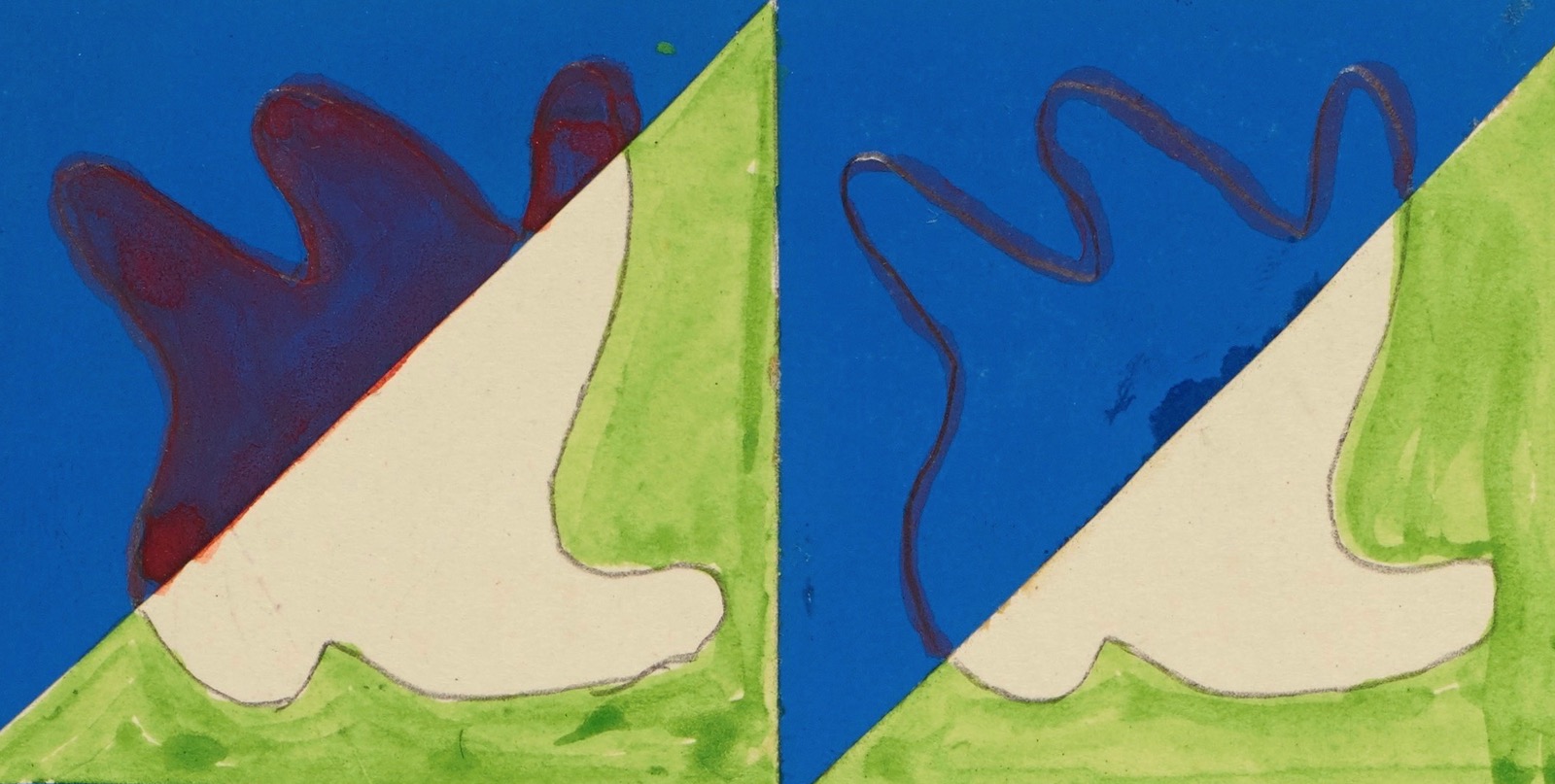This amazing article from David Butler over at British Art Studies shows something that I sort of knew – that Delia Derbyshire didn’t stop working when she left the BBC in 1973, but information was fairly scant (I suspect the additions of this information to her Wikipedia are fairly new) and hard to find – this well-researched article has clips and details of her outside BBC work, working at the LYC gallery, her artworks and work with Light/Sound Workshop (the Brighton Beachcomber piece is something I’d love to hear in full).
And tantalisingly, the article mentions Delia Derbyshire worked on the score or sound for a film I’d never heard of, Adrian Wagner’s film on Stonehenge. I suspect we will find more of these to come, if historians and archivists only look. But the few online snippets from other films such as About Bridges are fascinating, and remind me a lot of her work on Amor Dei and Dreams.
I have watched one of the films by Elsa Stansfield ‘Circle of Light’ directed by Anthony Roland and using the photography of Pamela Bone, Delia Derbyshire’s score is very hauntological and ambient – but I’ve not seen the other two she did with Elsa Stansfield and Madelon Hooykaas. Sadly I cannot find that clip now – it was on some slightly shady site – but the audio track has been released.
The issue with artist films is one of access usually, it’s hard to see these pieces although their existence has been known for a long time (and also this gets to another bugbear of mine, that I feel Arts Council is a scam to give public money to enrich their friends because like the NEA in the States, if public money goes to an artwork it shouldn’t stay in private hands, it should be publicly accessible and publicly archived. Because public money has paid for it, it’s essentially a work for hire.)
This article has provoked a lot of thought about how history and mythos has been portrayed, that still even NOW if you exist outside the big organisations, corporates etc. your work ‘doesn’t exist’ unless those same Big Art Business or media orgs validate it. And that private work of women working together and cross-media work tends to be ignored. It is indeed a ‘masculinist’ view of history, and surprising that even some feminists who look up to Delia Derbyshire perpetuate this myth. I have watched and read a lot about Delia Derbyshire, the various documentaries and features on her work (never seen Standing Wave though) and it always pushes this ‘tragic artist’ trope.
I thought historians, people doing academic work and curators were supposed to look past that blind spot? But it seems not, even now as that article proves. That the mythos of the ‘lone genius woman’ who walked away from music for decades’ spread by plays, articles who looked down on her post-BBC work, and even scholarly work is dangerously pervasive. And the question is: why are they pushing this idea?
Why are they ignoring the work of fellow female artists working together? I mean even then they are not even that ‘outside’ as at least one of the films had Arts Council funding, maybe the others did too – but even to this day the page on Elizabeth Kozmian’s Two Houses where you can hire the print from LUX it doesn’t even mention Delia Derbyshire!
Partly I suspect because that mythos sells, and puffs up an idea of the Radiophonic Workshop as a pure place of invention (‘Wee Have Sound Houses’). I have ranted about this before, but there certainly feels like an agenda to simultaneously cash in on her BBC work ‘legacy’ and weirdly devalue her outside work as ‘unsuitable’ or erase it entirely from the picture. Or from the other side, that she was a feminist victim of the patriarchal system; which might be true given the mostly male homosocial bitchy bureaucracy of the Beeb, but again that should not erase the whole story – especially when that narrative worryingly deletes the work of other female artists?
The history has mostly been told by those Workshop men – but interesting is the story told by her partner or quotes from artists like Elizabeth Kozmian who said she was “a cheerful majestic figure” seems to contradict those assessments of the ‘tragic troubled alcoholic’ and are far more interesting and a complex picture of an artist.
The idea that she was a loner and didn’t work with people seems to me as much a condemnation of how the Workshop and BBC was back then, than her because she happily worked with artists of all genders outside of the Workshop? And also there is this weird entitlement that artists should ‘share their gifts with the world’ – and like the Times obituary threw shade at her career after the Workshop as ‘unsuitable’ – who are they to say or demand that?
This editing of the narrative is concerning, because it reinforces the idea that the only way to work is within the ‘system’ – which nowadays is utter bollocks with all the tools we have – and that they are the gatekeepers to what is documented and archived and marked down as history (tellingly never herstory) – again which is utter bollocks.
We should be looking at the holistic person, and all attributes of who they were as an artist, creative, complex beings, rather than falling into tropes and cliches. Not just for Delia Derbyshire – but for artists generally, because from personal experience it seems if your work does not fit within the labels or the existing art system or organisations, it falls through the cracks. And that is bad for everyone, for future historians and culture generally.
How many other Delia Derbyshires have we lost to time because they didn’t even have that BBC spotlight?


Leave a Comment! Be nice….